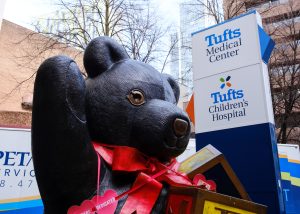Dateline: Capetown
February 26, 2008
The past two weeks I discussed South Africa’s overcoming apartness, its tenuous coming-togetherness, a few of the present torments and a few reasons for hope. Amid the backdrop are complications and considerations that could send anyone teetering. What to discuss: the hostilities between Zulu separatists Inkatha and the ruling party, the ANC? The uncertain economic climate that has wrought 40 percent unemployment? The crime rates and crushing poverty of the townships set amid the grandeur of the “Mother City”, Cape Town? How the legacy of colonialism and apartheid has informed many of today’s anxieties?
The struggle of Desmond Tutu’s rainbow people of God to stay in the sun bore out before our group. Despite all the country’s other problems, HIV is what garners international attention now that the curtain has set on apartheid, and it’s what drew us there. Why, we wanted to know, was South Africa hit so hard? The numbers are gaudy: Khayalitsha, the township we spent most time in, saw one out of every three citizens infected according to a government survey. Around one out of ten people nationwide. Imagine 30 million Americans living with AIDS! And it is a covert pest, as South Africa has discovered. It does not kill quick, like malaria or plague. It doesn’t even kill directly, since the ill generally die of TB or pneumonia. As in America during the ’80s, a lack of information, a surplus of disinformation, and a plexus of psychological and social factors contributed to its spread in the rainbow nation in the ’90s. False beliefs in South Africa about HIV, that it is rooted in witchcraft or that “Western” medicines are the real cause of all the illness, not only abound but are propounded by the highest government officials. It’s a desperate struggle for the truth.
Reagan’s reaction to the outbreak in America was lax, at best. Thabo Mbeki’s response, contrarily, was quite vocal and motivated – for a time. Mbeki, jealous of the dignity of the “new dispensation”, the new, African way of doing things, advanced a response that is a classic in the annals of bad government. With the antiscientific zeal of the Kansas school board in the Scopes monkey trial Mbeki and his ministers, for reasons that even today are at best guessed at, from his 1999 inauguration onward fought worldwide scientific consensus on HIV and AIDS, fought against the provision of antiretroviral drugs, and fought his own people dying in the streets of a manageable condition. While blocking government funding of ARVs he promoted a controversial drug created in South Africa, Virodene (active ingredient dimethylformamide, an industrial solvent). His health minister, Manto Tshabalala-Msimang, famously suggested beets and potatoes in place of (admittedly) toxic (but not that toxic) ARVs, and saw HIV prevention and treatment as another concern to be managed among many in the country, not as the gripping public health demand it was and is. She was penurious with funding regarding the problem: as the disease spread, public health had to compensate for added costs that would have been negated by previous good practice. Ideology trumped utility.
When government can’t or won’t provide necessities, people make do. The Treatment Action Campaign was founded in 1998 to engage in direct action and foment legal challenges against the government’s wet-brained policies. Zackie Achmat, the Cape Malay who founded the group, is a Robin Hood, righteous trickster figure who smuggled ARVs into the country and in 2006 occupied government offices with supporters to call for the arrest of Manto to bring attention to her failed policies. He has gone on long drug strikes, refusing to take ARVs – after being pleaded by Nelson Mandela! – until they were publicly available.
Most of TAC’s international press seems to focus on the romantic Mr. Achmat. But who comprised the rank and file? To answer this, we met with the TAC-affiliated Similela Rape Crisis Center, the Khukuleka Men’s Support Group, and also TAC offices in Khayalitsha.
Similela is a multilevel service organization set next to a TB clinic and pharmacy. We passed through a room where dozens of people waited for treatment, both the very ill and cool young cats reading soccer magazines. One patient lay alone, on a wooden bench. He was rail-thin and stared straight ahead.
Similela’s center in the Site B neighborhood provides shelter, medical and psychological treatment for rape victims, and works with the police to bring perpetrators to justice. Rape is widespread in South Africa, fueled by male chauvinism, alcohol, and desperation. Such a problem demands flexibility, which Similela’s model meets: “The Similela Centre is more than just a service provider. It is a platform from which to advocate for change, and there are many changes that could improve the system at present…But the real battle against rape can only be won by the community. Sexual violence will only stop when the attitudes that allow it to flourish are firmly rejected by all.”
I wonder how to talk about our tour of the clinic. It was cathartic. You can read crime statistics and crunch numbers about disease prevalence until three in the morning, but seeing Similela’s examination rooms was sobering. The raw human suffering that has transpired there was almost palpable. The walls were painted a relaxing color, looming large framed photos of kittens were on the wall. But the bed with the ankle gurneys dominated the room. We gave money for teddy bears given to the survivors.
We were given to Sister Mtutu, who led us through much of the rest of the clinic. We were attentive to every word she said, compelled and overwhelmed by our surroundings, the power of these people who can carry on their everyday lives with these enormous responsibilities.
As Sister Mtutu outlined treatment, a deep voice from just out of the room rasped, “Welcome…To Similela!” Following in short order, with resonance, an unkempt conga line stamped and clapped into the room. A determined woman in a red dress, the owner of that rich, rasping voice, shuffled in first.
“Welcome, to Similela!” she announced. Other women followed her, clapping in time, singing in unison.
“Welcome, to Similela, the rape crisis center.” Singing, clapping, they came up to dance with us.
The next day, we sat round in folding chairs in the sun with a bunch of the guys in a Khayalitsha back yard. The Khukuleka men’s support group, organized by Phumzile Nywagi and others, discuss gender roles and men’s issues in the face of the crisis. From my bead it seemed like an A.A. meeting, in the best sense; the guys bounced off of each other when talking about the most serious things and were comfortable, borrowing support from each other. They, in their pasts, had believed in some of the stigmas surrounding HIV/AIDS (“4X4” they called it, among other things) and had had them dispelled. They, in the past, drank at the makeshift pubs, lived the same lives of desperation their neighbors did. Their mission was to counter false information and fight negative attitudes among men. We engaged in a lengthy, enlightening discussion with them. These are the South Africans Thabo Mbeki should get his information from, I came away thinking.
Later on that day, we visited an orphanage. This was an unusual incident. Not bad unusual; but, it will take some explaining.
Over the last twenty-four hours, we’d been through some pretty powerful experiences. We saw extended and enormous suffering, and saw people fighting back against their circumstances with courage. Perhaps a tension had built up that necessitated a half-hour’s unadulterated play with a lot of kids, but if we had an agenda when we entered the orphanage it evaporated the second the first kids crawled and stumbled up to us.
I had a big bag of gummy animals (dinosaurs, tarantulas, and octopi in addition to the worms and bears) I’d been carrying around. I go the OK from the nurses and took it to town. Within seconds I was surrounded by screaming, jumping kids, dishing out the sweets (which conveniently doubled as toys). The candies flew in the air, and before I knew it I was on all fours with two kids on my back who were beating my butt with a plastic bat. Chaos reigned for a good twenty minutes while we gave piggyback rides, exchanged more high fives, and yelled nonsense. Kids speak an international language, and they’re a cinch if you remember it.
When we met back in the van, I sat leaning my arm out the window and felt a thwap on my elbow. I looked up. My main man from the orphanage, a tough eight-year-old boy, walked past, mugged at me and gave me a thumbs up, which I returned graciously. Regretfully, we went off to meet with some more grownups.










































































